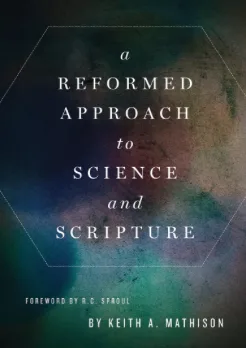Interpreting General and Special Revelation

As we saw in the last post, Dr. Sproul’s students all affirmed that God’s special revelation is infallible, but they were not ready to affirm that God’s general revelation is infallible. We have already explained why we must affirm that both kinds of revelation are infallible. Here we need to look more closely at why Dr. Sproul’s students were reluctant to affirm the same. In his response, Dr. Sproul says:
But what they were getting at was . . . they were saying not every scientific theory is compatible with the Word of God. And that's true. But historically, the church's understanding of special revelation of the Bible has been corrected by students of natural revelation with the Copernican revolution.
Dr. Sproul explains that his students were hesitant to affirm the infallibility of general revelation because they rightly believed that not every scientific theory is compatible with the Word of God. This is certainly true, but as we have already seen, this is not the question Dr. Sproul asked. Scientific theories are not the same thing as general revelation. General revelation (like special revelation) refers to an infallible action of God (or to the content revealed through that action). Scientific theories are the fallible interpretations of what Christians know to be God’s created works.
There are two issues involved in Dr. Sproul’s response that must be addressed. First, since general and special revelation both proceed from God, they cannot ultimately conflict. We will address this issue more fully in a future post. The second issue is one we will look at here, and that is the idea that a misinterpretation of one kind of revelation can be corrected by a right interpretation of the other kind of revelation. Few Christians would disagree with the idea that a right interpretation of Scripture (special revelation) can correct a misinterpretation of general revelation, but is the converse true as well? Can a right interpretation of general revelation correct a misinterpretation of special revelation? Does such an idea conflict with our belief in the inerrancy of Scripture?
Article XII of The Chicago Statement on Biblical Inerrancy
Since Dr. Sproul specifically mentions how certain interpretations of general revelation have helped the church correct misinterpretations of special revelation, it will be helpful to look briefly at Article XII of the Chicago Statement on Biblical Inerrancy and Dr. Sproul’s commentary on it because a misunderstanding of this Article has led to some confusion on this issue. Article XII of the Chicago Statement reads:
We affirm that Scripture in its entirety is inerrant, being free from all falsehood, fraud, or deceit.
We deny that Biblical infallibility and inerrancy are limited to spiritual, religious, or redemptive themes, exclusive of assertions in the fields of history and science. We further deny that scientific hypotheses about earth history may properly be used to overturn the teaching of Scripture on creation and the flood.
The denial section of this article is primarily directed toward those who would limit biblical inerrancy to spiritual matters and who would exclude biblical teaching related to matters touching on history or science. For the purposes of our discussion, the correct understanding of the second denial is important. In his commentary on this Article, Dr. Sproul writes,
It is important to note that the second denial, that scientific hypotheses about earth history may not be used to overturn the teaching of Scripture on matters such as the creation and the flood, does not carry with it the implication that scientific hypotheses or scientific research are useless to the student of the Bible or that science never has anything to contribute to an understanding of biblical material. It merely denies that the actual teaching of Scripture can be overturned by teachings from external sources.1
The word “actual” in the last sentence is significant. As Dr. Sproul reminds us, scientific discoveries in the late medieval period forced the church to reexamine its interpretation of Scripture regarding geocentricity.
Here the advances of science helped the church to correct an earlier misinterpretation of Scripture. To say that science cannot overturn the teaching of Scripture is not to say that science cannot aid the church in understanding Scripture, or even correct false inferences drawn from Scripture or actual misinterpretations of the Scripture.2
Dr. Sproul is making the simple point that while science cannot overturn an actual teaching of Scripture, it can sometimes correct a misinterpretation of Scripture. The church, for example, assumed for centuries that the Bible taught geocentricity–the idea that the sun, moon, planets, and stars revolve around a stationary earth. Careful observations of the earth, sun, moon, and stars eventually proved that the sun is at the center of our solar system, that the earth and other planets revolve around the sun, and that the moon revolves around the earth. Did such observations prove that the Bible was in error? No. These discoveries of how God had actually created things merely demonstrated that an interpretation of the Bible was in error.
Dr. Sproul is not saying anything new or strange here. Charles Hodge, the giant of nineteenth-century Reformed theology, said much the same:
It is admitted that theologians are not infallible, in the interpretation of Scripture. It may, therefore, happen in the future, as it has in the past, that interpretations of the Bible, long confidently received, must be modified or abandoned, to bring revelation into harmony with what God teaches in his works. This change of view as to the true meaning of the Bible may be a painful trial to the Church, but it does not in the least impair the authority of the Scriptures. They remain infallible; we are merely convicted of having mistaken their meaning.3
The Reformed churches have long held that synods and councils are fallible. As the Westminster Confession explains: “All synods and councils since the apostles' times, whether general or particular, may err, and many have erred” (XXXI:4). The same is true of individual Christians. We are fallible as well, and we may err and have erred in our individual interpretations of Scripture. Unless a person believes that he or she is an infallible interpreter of Scripture, this is a reality that must be kept in mind.
When we forget the distinction between what God is saying in Scripture and our own fallible interpretations of His Word, we run the risk of subtly replacing God’s Word with our word.
We Believe the Bible and You Do Not
As an example, consider the following statement by the great Lutheran theologian Francis Pieper in his Christian Dogmatics:
The difference between the Lutheran Church and the Reformed in the doctrine of Baptism is fully and adequately defined by saying that the former believes God's Word regarding Baptism, the latter not. (vol. 3, p. 269)
The problem with this assertion should be obvious (at least to those who are not Lutheran). Pieper considers the difference between the Lutheran church and the Reformed church on this subject to be a result of the Reformed church's refusal to believe the Bible. Historically, the Lutherans have made the same assertion in connection with the words of institution in the Lord’s Supper. In his debates with the Lutheran Joachim Westphal, John Calvin was almost driven to distraction by Westphal’s repeated claim that Jesus’ words “This is my body” allowed of no interpretation. One either believed them or one disbelieved them, according to Westphal.
During my final months at Dallas Theological Seminary, when I was slowly transitioning out of dispensational premillennialism toward Reformed theology, I was repeatedly informed that the only reason I was not a premillennialist was because I didn’t believe the Bible (specifically Revelation 20). My friends there could not grasp the fact that my difference with them had to do with a difference of interpretation, not a difference over the authority of God’s Word.
Reformed Christians rightly reject the claim that the only reason we do not accept the Lutheran doctrine of baptism or the dispensationalist understanding of the millennium is because we do not believe the Bible. These are disagreements over interpretations of God’s Word, not denials of its authority.
In the final words of his commentary on Article XII of the Chicago Statement, Dr. Sproul explains how the distinction between Scripture and interpretations of Scripture applies to biblical passages that have a bearing on scientific issues:
Questions of the extent of the flood or the literary genre of the earlier chapters of Genesis are not answered by this statement. Questions of biblical interpretation that touch on the field of hermeneutics remain for further investigation and discussion. What the Scriptures actually teach about creation and the flood is not spelled out by this article; but it does spell out that whatever the Bible teaches about creation and the flood cannot be negated by secular theories.4
In short, while scientific theories can help the church correct wrong interpretations of Scripture, they cannot negate what the Scriptures actually teach. Scripture teaches clearly, for example, that Jesus rose from the dead. Any scientific theory that denies the possibility of resurrection from the dead, therefore, is necessarily wrong. Scripture teaches that God is the Creator of heaven and earth and all that is within them. Any scientific theory that claims natural phenomena arose from purely materialistic causes is necessarily wrong.
Dr. Sproul illustrates his point about the fallibility of our interpretations by reminding us of how Luther and Calvin responded to the new astronomical theories of the sixteenth century. In our next post, we will look at this in more detail in order to discover what we might learn from the mistakes of others.
This article is part of the Reformed Approach to Science and Scripture collection.



